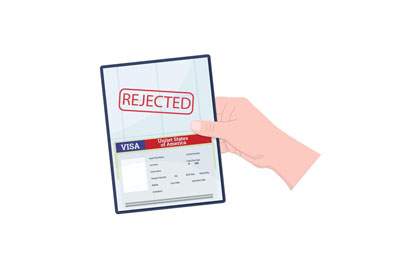Student Visas & Permits
In most cases, if you are studying for longer than three months, you will need a student visa in New Zealand. For shorter stays, you might be able to stay with only a tourist visa. As is the case with all countries wherever you go, the procedure for issuing student visas and other documents takes several steps. Therefore, the basic rule applies: start well ahead of time.
In order to be eligible for a student visa, you must have a confirmation letter on having been accepted to an NZQA-accredited course and on having paid the necessary fees. This documentation must include:
The name of the course and the minimum time required for completing it
Proof that the course and course provider meet New Zealand’s requirements for international students
Proof that you have paid for the course in full, or if the course is longer than one year, the first annual fee
Whether you have to pay course fees and whether the rate of fees is at the lower domestic rate or the higher international rate
Whether you are studying full-time or part-time
The institution application process itself may take several months if you have to have your existing qualifications assessed. In addition to your transcripts, you will need to produce a passport valid at least three months past your leaving date, as well as proof of sufficient funds to support yourself and to pay future tuition fees throughout your study.
Once you have all of your documentation ready, you can submit your application to the nearest New Zealand embassy or consulate. For some nationalities and circumstances, special regulations apply, so make sure to check with the New Zealand migration authorities before submitting your application.
Once you have your permit there are certain conditions you must meet during your stay:
You must enroll and attend the educational institution noted in your permit. It is possible to change the course or institution in your permit.
You must show that you are passing your course
Only undertake work allowed through your student permit
Obey New Zealand laws
Only stay in New Zealand for the time allowed by your permit.
Housing & Living Costs
The cost of living in New Zealand can vary dramatically depending on the city you're living in. But, in general, some average costs in New Zealand are:
Meal: NZD $20
Coffee: NZD $4.76
Beer: NZD $9
Cinema Ticket: NZD $16
Monthly rent: NZD $1,478
Monthly Transport: NZD $165
Most institutions will be happy to help you to find accommodation prior to your arrival. Normally, you’ll have several options on where to live:
Halls of Residence & Student Hostels
Halls of residence, also known as student hostels, are usually located on campuses or near to them. These will have you living close to classes together with lots of other students from all over the world in a very socially active setting. Rooms are single or twin, with basic furnishings, bed linen and cleaning provided. In many cases you will also be served meals in the communal dining hall. At some institutions you will have the option of living in self-catering hostels where six to eight students live together with their own rooms, but share a kitchen and living area.
Home Stay & Private Board
Home stays or private boarding normally means that you’ll get a room with a family, normally in a suburban house with gardens. Meals will be provided by the family. What you must keep in mind here is that you are living with a family, so there can be some tight rules. In return, you’ll get a family that will include you in their life and culture and help you adjust to your new life in New Zealand.
Private Renting
Private renting of a house or apartment (flat) with other students is also a common option. This is often referred to as ‘flatting’. This can be difficult to arrange when you first arrive as private lets are usually rented unfurnished with only the kitchen basics provided. Also, many choose to wait and get to know some other students with whom they can later share. It’s also worth noting that all utilities are usually extra and heating is not always provided in New Zealand.
You’ll find listings on notice boards at your school, in local newspapers and on the internet. Letting agencies may take up to a month’s rent in advance as a deposit when you move in.
Tuition Fees and Scholarships
All higher education in New Zealand requires you to pay per academic year of study. Fees in New Zealand are relatively low compared to those of other developed countries.
Fees for undergraduate study can cost about NZ$22,000–$32,000 (US$16,000-$23,000) per year. Costs vary depending on your course.
Postgraduate courses can cost between NZ$26,000-$37,000 (US$19,000-$27,000) per year.
Living costs across much of New Zealand normally come to at least NZ$15,000 (US$11,000) per year.
In order to be granted a student visa, you will have to prove that you can not only pay the university/school fees during your time of study, but also that you can support yourself during that time. If you aren’t able to cover the costs through private means, you do still have some possibilities:
It’s possible to be granted an extension on your visa for part-time work up to 20 hours per-week in term time and full-time during holidays. You will however have to prove that you can pay your way even without the job.
Any government grants, scholarships or loans granted from your home country can be counted towards the threshold.
The New Zealand government grants certain international scholarships, for both undergraduate and postgraduate study. You can find more information on these here.
If you’re intending to stay for longer than six months or are intending to work, you will require an IRD number. This is your individual tax number supplied by the Inland Revenue Department (IRD). The reason you need this number, even if you are not working, is that, if you have money in a New Zealand bank, resident withholding tax (RWT) will be withdrawn from any interest you earn. Without an IRD number, this tax will be deducted at a higher non-declaration rate.
As for scholarships, New Zealand has plenty on offer. You can find a list here. Your home country might also offer scholarships for study abroad in New Zealand.
Language & Culture
Living and interacting with New Zealand's culture can be easy for international students as the dominant language in New Zealand is English, with around 96% of the population speaking it as their first language. Other official languages are New Zealand Sign Language (0.51%) and Māori, the language of the indigenous Māori people (3.73%). Both English and Māori are official languages.
A majority of higher education programs are taught entirely in English, with some specialist programs being taught in Maori or New Zealand Sign Language. Both local and international students can complement their studies by taking courses to learn any of these languages, providing opportunities to gain a broader, more immersive educational experience. There will also be a student-run study or community groups where you can go to learn, practice, and meet others studying or speaking these languages.
Talk to your university about what language opportunities are available. When it comes to languages, Kiwis are only too happy to help.
You’ve probably heard about Māori culture and their haka dance. Well, in New Zealand, Māori culture plays a part in everyday life. As an official language, it's common to hear Māori spoken, and many official place names are in Māori. You can easily learn the correct pronunciation of place names as well as a few simple Māori words and phrases, like kia ora, and other greetings.
Application Process
If you want an undergraduate education from New Zealand, you will require a senior high school diploma - considered to be the equivalent of a New Zealand-issued diploma. If you are from a non-English speaking country, you must have these documents translated. In some cases, the institution you are applying to may ask you to have your qualifications assessed by the New Zealand Qualifications Authority (NZQA). This will cost NZ$450 (US$330) and can take up to eight weeks.
For postgraduate education, the same applies with regards to translation and assessment, although most countries with a similar degree structure will be acceptable for entry. You will generally need a previous bachelor’s degree in a field related to the postgraduate course that you want to study.
The other main requirement will be proof of your proficiency in English. Proof of this can be given in several different ways, including previous English-speaking education or an English proficiency test. The TOEFL iBT test is a great option for the test requirement, because it is accepted by 100% of New Zealand universities and the NZQA.
How the Application Process Works
Applications for higher education in New Zealand are made directly to the school(s) at which you want to study. You’ll need to:
Complete the relevant application form. Many schools let you do this online, but you’ll still need to complete your application with documents sent by post or courier. Remember: you may need to include certified translations of your grades and diplomas.
If you are offered a place, you will receive a letter from the institution containing information on start dates, course details and an invoice for your tuition fees. You’ll need this letter when you apply for your student visa.
Once you have paid the fees you will receive a confirmation letter. You’ll also need this for your visa application.
Once you have your visa, travel and finances all organized, contact the university for help with organizing housing and airport pick-up.













